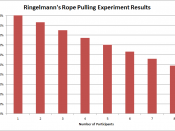Work in Relationships / Groups
Why does work occur in groups, relationships?
In order to achieve its goals and objectives, the work of an organisation has to be divided among its members. Some structure is necessary to make possible the effective performance of key activities and to support the effects of staff." - L Mullins.
When looking at work in relationships, one has to understand that when work is divided it gives rise to structures, which in turn give rise to interactive relationships.
Today more and more work occur in relationships where groups / team type structures are being implemented.
New structures which are fostering more relationship type work are as follows:
Flat Structures
Horizontal structures
"Chunked" and "Unglued" structures
Output-focused structures
The New Organisation -ACCA-BPP publishing 2002
Structure represents the pattern of relationships among the positions in an organisaton and among the members of an organisation.
These structures are leading to different work relationships from what was before a hierarchy of simply subordinate, supervisor and manager.
It is giving rise to flatter structures with teams, more autonomy, multiskiling, multidisciplinary groups, empowerment and flexibility. The matrix structure for eg. Where there are multifunctional units is now a new type of relationship. Today we have many temporary work relationships which lasts as long as a project
Work in Relationships - Specifically Groups.
"Groups are a major feature of organisational life. The work organisation and its sub- units are made up of groups of people. Most activities of the organisation require at least some degree of co-ordination through the operation of group working. The understanding of the nature of groups is vital if the manager is to influence or manage the people in the group." L Mullins
Mullins goes further to say that the influence that groups exert over their membership must...


